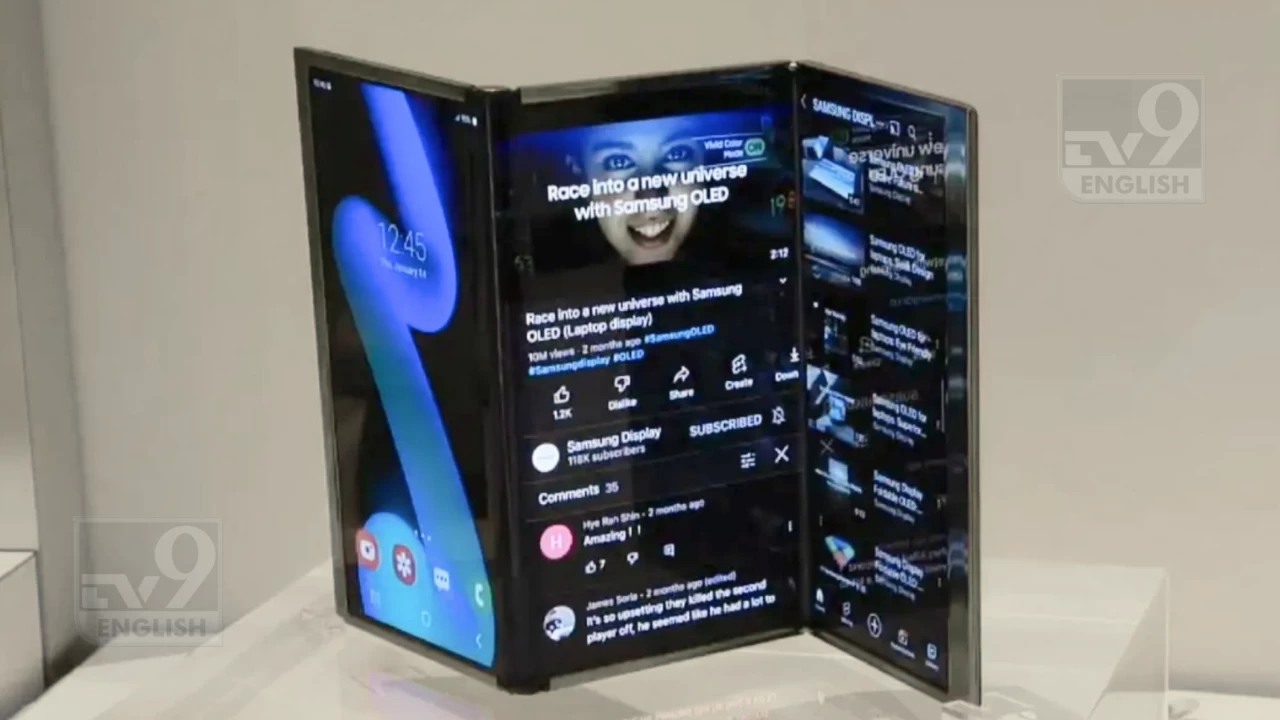

By signing in or creating an account, you agree with Associated Broadcasting Company's Terms & Conditions and Privacy Policy.


By signing in or creating an account, you agree with Associated Broadcasting Company's Terms & Conditions and Privacy Policy.

Samsung is preparing to make a fresh push in foldable technology with a smartphone that bends not once, but twice. Reports from Korean media suggest the long-rumoured “Tri-Fold” device may be revealed as early as this month at what could be Samsung’s third Galaxy Unpacked event of 2025.
The device isn’t entirely new to the public eye. A prototype similar to this was shown at the Mobile World Congress earlier this year. Now, insiders say the company has already begun preparations for mass production, with suppliers ramping up materials and components for the unusual dual-hinge foldable.

According to Etnews, Samsung Electronics is targeting shipments of around 50,000 units of the “double-folding” smartphone. Industry watchers believe this limited production run is a way to gauge market response to an entirely new form factor without eating into the momentum of the recently launched Galaxy Z Fold 7, which is reportedly selling well since its July release.
The Tri-Fold is expected to feature a 9.96-inch internal display and a 6.49-inch cover screen, aligning closely with Samsung Display’s “Flex G” concept shown at exhibitions. Unlike the Z Fold series that bends once down the middle, this design folds twice, creating a more compact form when closed.
The launch is expected to go beyond the Tri-Fold. Reports mention that Samsung will also unveil two wearable Android XR devices. These include the Project Moohan XR headset and a pair of AI-powered smart glasses codenamed Project Haean.
The glasses are described as audio-only smart wearables powered by Qualcomm’s AR1 chip. Samsung is positioning them as a direct rival to Meta’s Ray-Ban smart glasses, which have been leading this niche market.
Samsung’s foldable journey began in 2019 with the first Galaxy Fold, and it has refined the formula across seven generations. All of them, however, relied on a single hinge design. The Tri-Fold introduces something completely different, and while exciting, it brings risks. Too much production could cannibalise demand for the Z Fold 7, which is why Samsung is initially choosing a smaller run, with availability only in South Korea and China.
The Tri-Fold smartphone is expected to be expensive, reflecting the practical challenges of entering new categories. Building a dual-hinge device means higher complexity, more moving parts, and greater chances of durability concerns. By limiting units, Samsung can test real-world usage before committing to larger volumes.
If the Tri-Fold does launch in September, it will likely be one of Samsung’s boldest experiments in smartphones since the original Galaxy Fold. With the added unveiling of XR wearables, the company seems to be carving out a future where foldables and extended reality coexist under one Galaxy ecosystem.
The real test will be how consumers respond to a device that’s part phone, part tablet, and part experiment. For now, all eyes are on Samsung’s next Unpacked stage, where a three-way fold could set the tone for the next chapter of mobile design.












